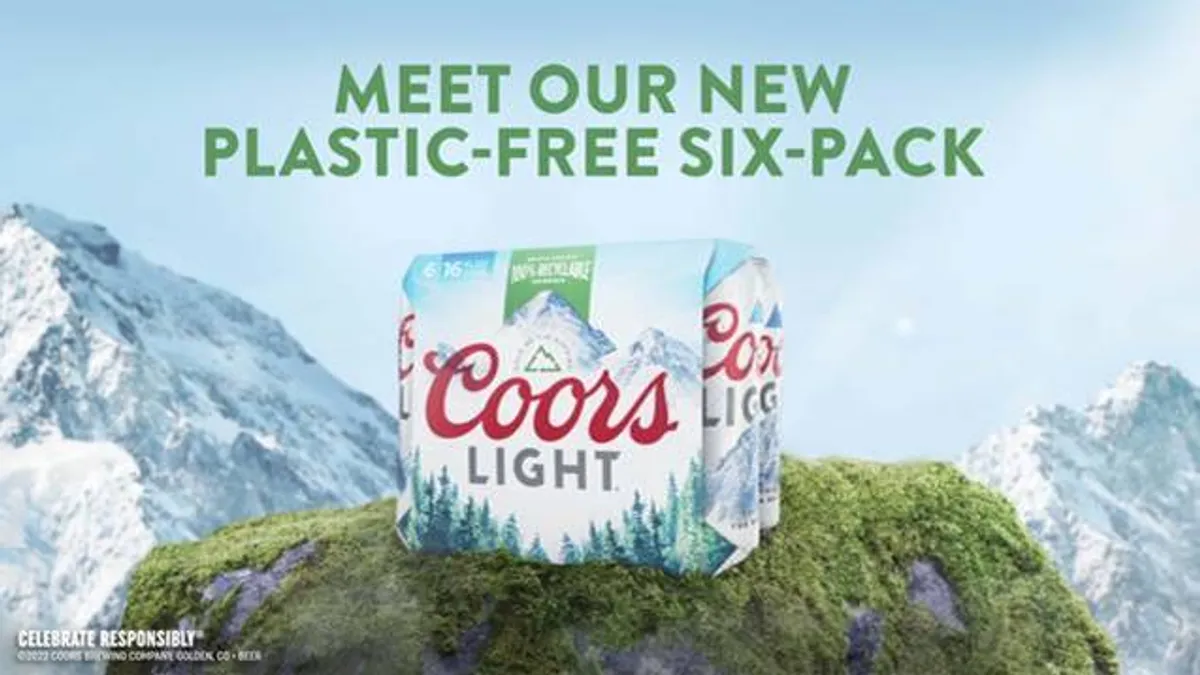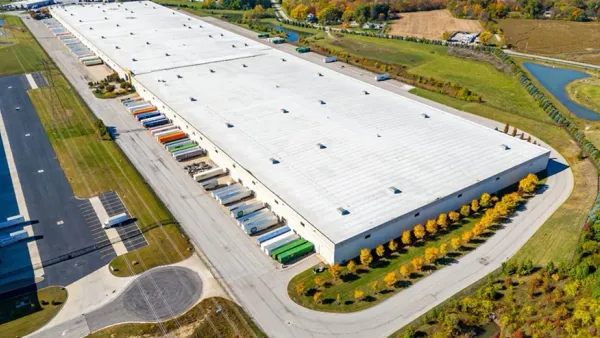Dive Brief:
-
Coors Light will begin moving out of plastic rings this year from its packaging globally where parent Molson Coors owns the brewing operations in favor of fully recyclable and sustainably sourced cardboard-wrap carriers, the company said in a statement.
-
To support the move to more sustainable packaging, Molson Coors said it will invest $85 million in its operations. The money will enable Coors Light to start the transition while allowing Molson Coors to upgrade machinery to allow its entire North American portfolio — covering more than 30 brands that currently use plastic rings — to use cardboard wrap carriers by the end of 2025.
-
Many sustainability-minded food companies, from Nestlé and PepsiCo to General Mills and AB InBev, have improved their packaging to help them meet their own environmental goals. Coors Light would be the largest beer brand in North America to move away from plastic rings, Molson Coors said.
Dive Insight:
For many consumers concerned about their food, packaging has become a major factor in deciding what to buy.
More than two-thirds of consumers consider it important that the products they buy are in recyclable packaging, according to Trivium Packaging’s 2021 Global Buying Green Report. A separate study conducted during the pandemic by Shorr Packaging found 58% of consumers said they were likely or very likely to purchase food products in packaging that clearly states it is reusable or recyclable.
With that in mind, companies like Molson Coors can no longer just depend on the taste and ingredients of the product itself to attract consumers but increasingly what the offering is packaged in. As more CPGs overhaul their packaging to make it more environmentally friendly, competitors have no choice but to respond or risk getting passed over on grocery store shelves.
"Our business, and Coors in particular, has a long history of using packaging innovation to protect our environment, and today we are building on that rich legacy,” said Gavin Hattersley, Molson Coors' CEO, in the announcement.
Molson Coors estimated the move to cardboard-wrap will save 1.7 million pounds of plastic waste annually by 2025. The Coors Light announcement moves Molson Coors closer to its goal of ensuring its packaging is 100% reusable, recyclable or compostable, and consumer-facing plastic packaging is made from at least 30% recycled content by 2026.
The beer giant behind brands such as Miller, Blue Moon and Milwaukee's Best no doubt is using insight it collected from its packaging efforts in other parts of the world with its latest initiative.
Last year, Molson Coors removed plastic rings across all major brands sold in the U.K. and transitioned to recyclable cardboard sleeves. The company also adopted more sustainable plastic rings in Canada in 2021, the first step in a longer-term goal to eliminate plastic rings entirely. Molson Coors also noted its Coors brand debuted the two-piece recyclable aluminum can in 1959, which it intentionally did not patent.
What started out as a few companies making changes to sustainable packaging has quickly gained momentum across the industry.
Nestlé is moving at least some of it Carnation Breakfast Essentials offerings from plastic bottles to Tetra Pak cartons made with paper it claims is responsibly sourced. General Mills' Nature Valley Crunchy granola bars moved to fully recyclable plastic wrappers and PepsiCo's Frito-Lay division is introducing a compostable bag for its Off The Eaten Path brand. Coca-Cola has introduced bottles made from 100% recycled plastic material while Mars Wrigley has partnered with Danimer Scientific to create biodegradable wrappers for Skittles.
The alcohol space is making the transition, too. Bacardi said it would transition all its spirits brands to 100% biodegradable plastic packaging made with plant-based oils by 2023. Corona has unveiled sustainable packaging that repurposes barley straw into packaging material for its six-packs. And Danish brewing company Carlsberg is developing what it describes as the world’s first paper beer bottle.















